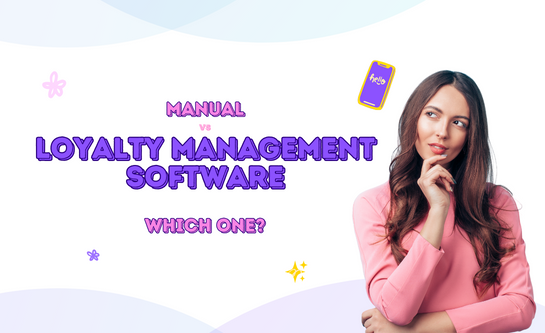Loyalty in the Age of Disruption: Are You Ready?
 Jun 05th, 2023
Jun 05th, 2023
 437 views
4 MINS READ
437 views
4 MINS READ
In today’s fast-paced and ever-changing business world, customer loyalty is more important than ever. However, traditional approaches to customer loyalty are being challenged by disruptive technologies and changing customer expectations. As a result, businesses must be proactive and adaptable to the new reality of customer loyalty.
The Rise of Disruptive Technology
The emergence of disruptive technology is rapidly transforming the business landscape. From artificial intelligence and machine learning to virtual reality and the Internet of Things, businesses are finding new and innovative ways to engage with customers. For example, virtual reality can be used to provide customers with immersive and personalized experiences, while the Internet of Things can be used to gather data and provide personalized products and services.
However, with new technologies come new challenges. Customers are becoming increasingly tech-savvy and have higher expectations when it comes to their interactions with businesses. They want a seamless and personalized experience across all channels, including social media, email, and in-store.
To keep up with the demands of customers, businesses must embrace new technologies and approaches to engage with their customers. The days of relying solely on traditional loyalty programs are long gone. Instead, businesses need to leverage technology to provide an exceptional customer experience and build long-term loyalty.

The Importance of Customer Experience
Providing an exceptional customer experience is a crucial factor in building customer loyalty in the age of disruption. Customers expect a seamless and personalized experience across all channels and touchpoints. They want to be able to interact with businesses on their own terms, whether it’s through social media, email, or in-store.
To meet these expectations, businesses need to take a customer-centric approach to marketing, sales, and service. This means having a deep understanding of customer needs and providing a seamless experience across all touchpoints. By doing so, businesses can build trust and foster long-term loyalty.
The Power of Data
Data is another critical component in building customer loyalty in the age of disruption. With the advent of big data and advanced analytics, businesses can gain valuable insights into customer behavior and preferences. By leveraging this data, businesses can create targeted marketing campaigns and personalize the customer experience.
To make the most of data, businesses need to invest in the right technology and tools. This includes implementing data analytics software and investing in a robust customer relationship management (CRM) system. By doing so, businesses can make data-driven decisions that lead to better customer experiences and stronger loyalty.
The Role of Employee Engagement
Employee engagement is also a critical factor in building customer loyalty in the age of disruption. Engaged employees are more likely to provide exceptional customer service and create positive customer experiences. They also have a better understanding of customer needs and can provide personalized recommendations and solutions.
To foster employee engagement, businesses need to invest in training and development programs. They should also provide employees with the tools and resources they need to provide exceptional customer service. By doing so, businesses can create a culture of engagement that leads to long-term loyalty.
The Importance of Innovation
Finally, innovation is a key component in building customer loyalty in the age of disruption. Businesses that are able to innovate and adapt to the changing landscape of customer expectations are more likely to succeed. They can create new and innovative products and services that meet the needs of customers and provide a seamless and personalized experience across all touchpoints.
To foster innovation, businesses need to invest in research and development. They should also create a culture of innovation and encourage employees to think outside the box. By doing so, businesses can stay ahead of the curve and build strong, lasting relationships with their customers.

To summarize, loyalty is crucial for businesses to succeed in the age of disruption. To stay ahead of the competition and meet the ever-changing expectations of customers, businesses must be proactive and adaptable. By adopting new technologies, prioritizing the customer experience, utilizing data, engaging employees, and promoting innovation, businesses can build long-term loyalty.
It is essential for businesses to remember that loyalty is not solely about rewards or discounts but about creating an exceptional customer experience that fosters trust and a lasting relationship. By focusing on the customer and implementing new technologies and approaches, businesses can succeed in the age of disruption.
To begin, businesses should review their current loyalty strategies and identify areas for improvement. This could involve investing in new technologies, personalizing the customer experience, or enhancing employee engagement. Additionally, it is crucial for businesses to monitor the success of their loyalty strategies and make data-driven decisions based on the insights gained.
All in all, loyalty in the age of disruption is a complex and evolving landscape. However, businesses can thrive by embracing new technologies, prioritizing the customer experience, utilizing data, engaging employees, and promoting innovation. Ultimately, businesses must adapt to changing customer expectations and create exceptional experiences to build trust and long-term relationships.
Learn more about us via Website or LinkedIn
Contact us via info@ezloyalty.io
 Back to blog page
Back to blog page

































